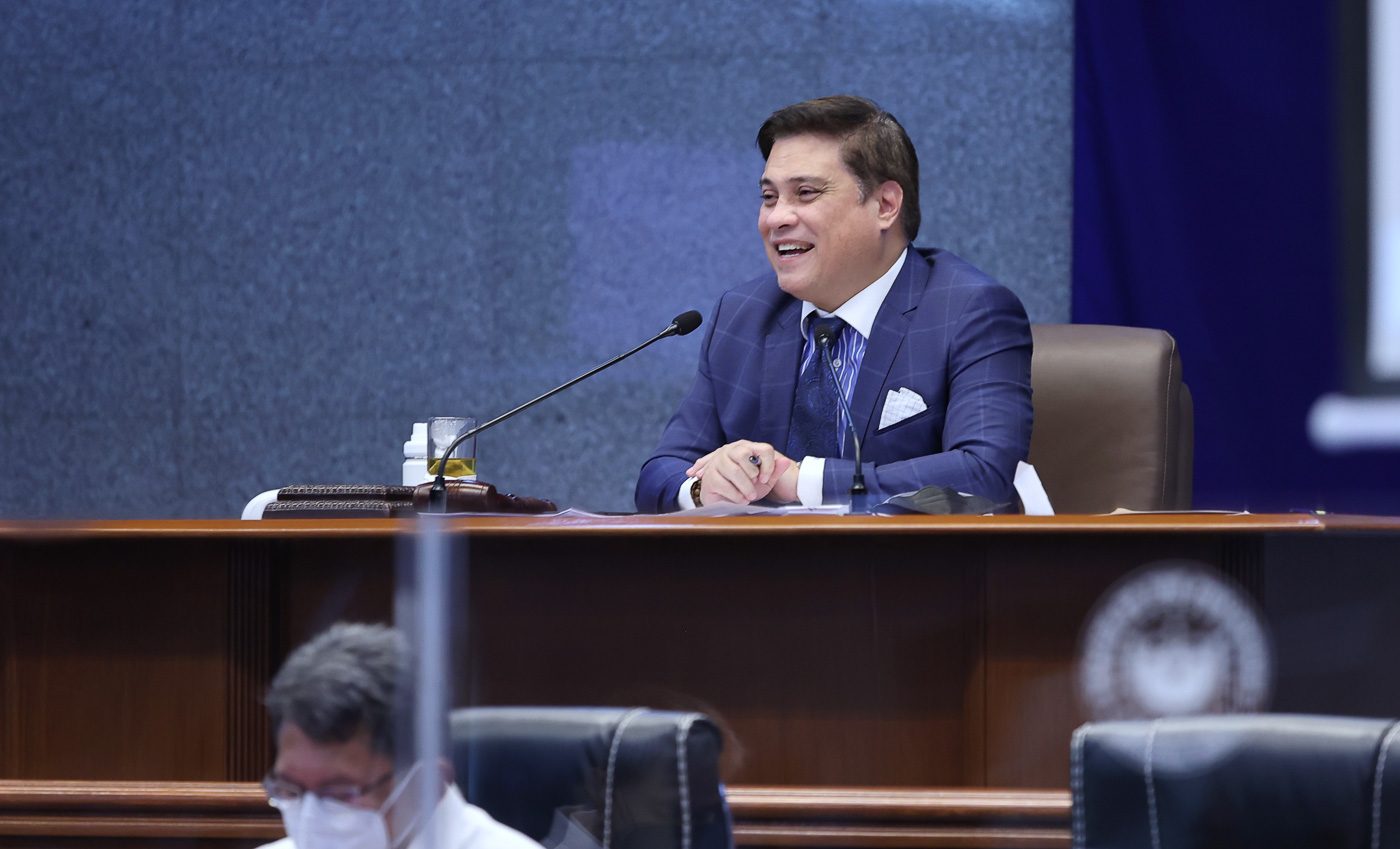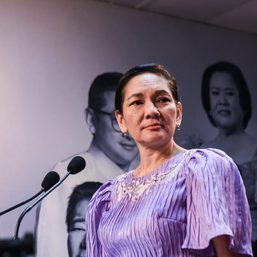SUMMARY
This is AI generated summarization, which may have errors. For context, always refer to the full article.

MANILA, Philippines – China on Tuesday night, October 11, denied reports that it had included the Philippines on a blacklist for Chinese tourists due to online gambling operations in the Southeast Asian country, labelling these reports as “misinformation.”
“China has not placed the Philippines on its blacklist for tourism,” the Chinese embassy said in a statement to media Tuesday night. “The report of ‘tourist blacklist’ is misinformation.”
China made the clarification a day after Senate President Juan Miguel Zubiri claimed during a Senate hearing that China had placed the Philippines on a “blacklist for tourist sites.” Zubiri said Chinese Ambassador Huang Xilian had shared the information with him during a courtesy call on Monday, October 10.
Zubiri, referring to his conversation with Huang, said China had expressed concern over the safety of Chinese nationals after Philippine offshore gaming operators (POGOs) were found to be linked to crimes like sex trafficking, corruption, money laundering, and the forgery of documents, among others.
Asked to respond to China’s latest remark denying his statement, Zubiri said it must have been “lost in translation.”
“Maybe it was lost in translation and what the good ambassador meant was we could possibly be blacklisted,” he told reporters.
Despite this, Zubiri said that it was Huang who used the word “blacklist.”
“So truly there is a strong possibility that we are either already in the list or could be added on that list if POGOs continue to proliferate in our country,” he said.
Zubiri added, “We respect the statement he made today as one of careful diplomacy as I’m sure he does not want raise any diplomatic alarm bells when it comes to this matter.”
Putting aside the embassy’s latest statement, the Senate president said China’s position remained clear:
- POGOs are totally illegal in China, and those promoting it will be arrested.
- Their government is asking us to stop hosting this activity,
- and if could affect tourism potentials if this activities continue.”
“That was the message, don’t shoot the messenger,” Zubiri said.
The Senate leader continued to stand by his statement on Wednesday morning, saying Huang had agreed to let him raise the issue during a Senate hearing on POGOs.
“Senator Gatchalian was there and I said he has a hearing tomorrow. Is it alright if I mention some of these to them at the hearing? And he said ‘Yes, absolutely,’” Zubiri said in an interview with ANC.
Zubiri also told Senate reporters on Wednesday morning that it was “regrettable” that the Chinese embassy labeled earlier statements on the issue as “misinformation.” By doing so, Zubiri said he was made to look as though he was spreading false information.
“The fault lies with the ambassador. He mentioned blacklisting. Maybe he made a mistake. But we stand by our statement that the ambassador mentioned the word ‘blacklisting’ several times,” he said.
Zubiri continued: “’Di kami nambobola. Di kami nananaginip. Siya na magclarify kung mabablacklist tayo kung tutuloy ang POGO dito sating bansa.” (We’re not making it up. We’re not imagining things. He should clarify if we could be blacklisted if we keep POGOs here in our country.)
Potential losses
First pressed to confirm Zubiri’s statement, China only said that tourism was an “important component” of ties between the two counties. The embassy likewise said it was in” close communication” with the Philippine law enforcement agencies and had “stepped up cooperation” on a crackdown against POGO-related criminal activities against Chinese in the Philippines.
The Senate president said concern stemmed from potential losses were the Philippines to be added to China’s blacklist. China was the source of the second largest tourist arrivals to the Philippines as of 2020, with each individual estimated to spend some $1,000 on shopping alone per visit.
The Chinese government had long expressed its opposition to POGOs – which had flourished under the previous administration of former president Rodrigo Duterte – citing it as a “threat” to social order. In 2019, Beijing had even asked the Philippine government to ban all online gambling, though Duterte had resisted the request.
Unlike Duterte, the Marcos administration has so far expressed willingness to ban POGOs, with Finance Secretary Benjamin Diokno citing the need to halt its operations due to its “social cost” and “reputational risk.”
Beijing first announced it had such a blacklist for overseas gambling destinations in August 2020, and later added additional spots in January 2021. The said list has not been made public.
Aside from the Philippines, other gambling hotspots in Southeast Asia include Malaysia and Myanmar. – Rappler.com
Add a comment
How does this make you feel?







![[OPINION] Pusong mamon or pusong bato? Bato dela Rosa and the politician as ham actor](https://www.rappler.com/tachyon/2024/05/pusong-mamon-pusong-bato-may-24-2024.jpg?resize=257%2C257&crop=361px%2C0px%2C1080px%2C1080px)


![[In This Economy] Marcos’ POGO ban is popular, but will it work?](https://www.rappler.com/tachyon/2024/07/thought-leaders-marcos-pogo-ban.jpg?resize=257%2C257&crop=255px%2C0px%2C720px%2C720px)
![[Rappler Investigates] POGOs no-go as Typhoon Carina exits](https://www.rappler.com/tachyon/2024/07/newsletter-graphics-carina-pogo.jpg?resize=257%2C257&crop=424px%2C0px%2C1080px%2C1080px)







![[WATCH] Bamban POGO scandal: There’s a bigger fish than Alice Guo](https://www.rappler.com/tachyon/2024/07/inside-track-tcard-bamban-pogo.jpg?resize=257%2C257&crop=435px%2C0px%2C1080px%2C1080px)
There are no comments yet. Add your comment to start the conversation.